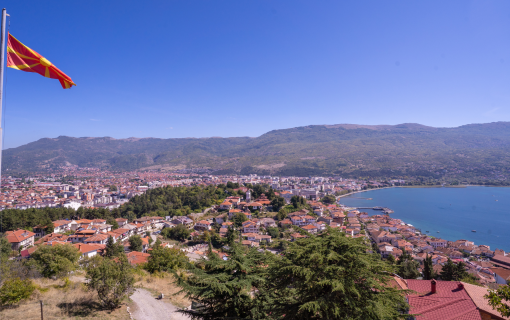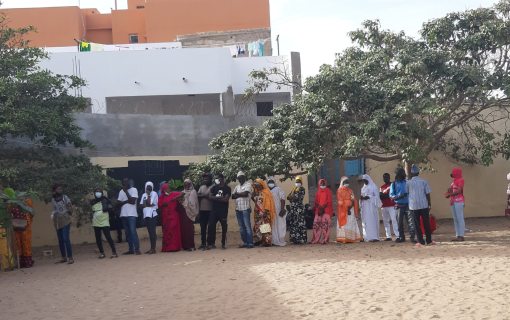
Partnership with Election Management Bodies
Mexico’s National Electoral Institute (INE) is responsible for conducting federal elections in Mexico and working with local-level election management bodies (EMBs) to jointly organize local elections. Since 1993, the International Foundation for Electoral Systems (IFES) has worked with the INE, and its predecessor the Federal Electoral Institute (IFE), to advance the democratic process in Mexico and throughout the region. In this Q&A, Manuel Carrillo Poblano, head of the International Affairs Unit of the INE, discusses IFES and the INE’s efforts to promote credible and transparent elections and the INE’s collaboration with EMBs around the world.
Tell us about your first interaction with IFES?
Our first interaction with IFES was in 1993. At that time, the IFE (now the INE) approached IFES to invite them to become familiar with the Mexican electoral system, since IFES was conducting comparative studies on electoral systems and conducting democracy and governance programming around the world. In 1993, Mexico implemented its international policy on elections, and IFES was one of our first partners during this period.
IFES and the INE have enjoyed a strong partnership for many years. What are some of the most tangible results of this partnership in your opinion?
First, we promoted the Trilateral Conference on Electoral Systems between Canada, the U.S. and Mexico. Also, in partnership with IFES we developed and implemented collaborative technical assistance activities in Africa, Latin America and Central and Eastern Europe. In 1999, the IFE cooperated with IFES, the United Nations, International IDEA and Elections Canada to develop the Partnership for Electoral and Democratic Development, an influential association for the promotion of democracy worldwide.
We also worked together, in partnership with other agencies, in the creation of the ACE Project, the electoral knowledge network. Finally, together, we have organized some of the world’s most important conferences on election issues for electoral officials and authorities. The first Global Elections Organization (GEO) Conference was held in Ottawa in 1999, with other GEO conferences in Mexico City (2003); Siofok, Romania (2005); Washington, D.C. (2007); Botswana (2011); and Seoul (2013). In November 2016, the seventh GEO conference was held in Washington, D.C.
The past decade has seen more EMBs engage in technical cooperation with other EMBs. How has the INE contributed to this trend?
The INE, and its predecessor, have been active agents in the development of technical cooperation between EMBs. Since 1993, we have driven this trend through various mechanisms, including: 93 technical assistance missions, 166 electoral observation missions, 73 courses and workshops on electoral administration training, and more than 10 publications on electoral issues.
Where do you think IFES has made the biggest contribution to democratization over the past 30 years?
IFES has been a key player in the global democratization process in the last 30 years, and a pillar of international cooperation on electoral matters. Its contributions in terms of technical assistance in Central and Eastern Europe, Africa and other regions, are outstanding examples. Also, its legacy is not limited to this type of cooperation, because IFES has also been very influential in the most important reflections made about the state of democracy worldwide and challenges and opportunities for the future.
What are the challenges that lie ahead for democracies in the 21st century?
Democratization is a historical, cultural, political and social process, which perpetually runs into obstacles. Today, the main challenges focus on the integrity of the electoral process, political violence, exclusion, transparency and accountability, and money in politics. In the future, efforts should be directed to strengthen democracy through fighting corruption and educating citizens about their democratic rights.









